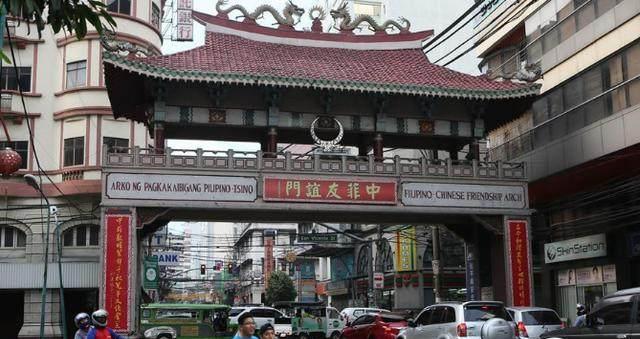We often say that Japan is the country most influenced by China, whether it is their architecture, system, or culture, everywhere reveals the shadow of China.
In fact, not only Japan, but ancient China in its heyday had a weighty influence throughout East Asia and Southeast Asia, and some of its influences even continue to this day. For example, the Philippines, like Japan, is an island country.

China's exchanges with the Philippines have a long history, dating back to the Three Kingdoms of Eastern Wu.
More than 1700 years ago, the water division of Sun Quan, the grandfather of Eastern Wu, was very powerful. Internally, he not only fought against Cao Cao; externally, he also sent Eastern Wu officials to Southeast Asia to patrol the small countries. During this period, the visiting fleet passed through the Philippines.
Later, in the Sui and Tang dynasties, the shipbuilding industry in the Philippines also developed, and the two countries began to have their first trade exchanges. At that time, the Philippines was rich in spices, and China's tea, porcelain, and silk were more famous, so the two countries "exchanged ideas" under the condition of complementary resources.
Saying "mutual communication" is actually a bit of "lifting" the Philippines, because with China's military strength at that time, even if it is incorporated into a province of China, it is effortless. However, as everyone in China knows, the ancient emperors all regarded themselves as "heavenly kingdoms", and the foreign tribes would not be easily looked at by them. Especially in a "desert island" like the Philippines, which is isolated overseas, if it were not for the scarce spice resources of the imperial court and nobles at that time, I am afraid that the opportunity for mutual trade with China would be very small.
The Philippines, which has been in a trade deficit for a long time, can be said to have benefited many rich Fujian merchants during the Tang and Song dynasties, and some of them even emigrated overseas and became the richest figures on Luzon (the largest island in the Philippines).
With money, there is not necessarily status, but it is different during the Ming Dynasty.
During the reign of Ming Chengzu Zhu Di, Zheng He was ordered to go to the West seven times, one of which was through the 'Sulu Kingdom'.
Sulu is the old name of the ancient Philippines, Zheng He's fleet passed by, Sulu has just been founded less than 20 years ago, and many places are not even 'organized' very complete. The island of Luzon, where Zheng He landed, is one of them. In view of this, and at the same time feeling the prestige of the Ming Dynasty, Zheng He recommended a wealthy Chinese merchant to be the governor at the request of the locals. It was at this time that the influence of the Chinese began to grow in Luzon and even throughout the Sulu.
If the Ming Dynasty was a "honeymoon period" in which relations between China and the Philippines heated up rapidly, then the Qing Dynasty was a turning point in the "ice-sealing" of relations between the two countries.
Strictly speaking, it is the middle and late Period of the Qianlong Dynasty. In 1753 (the eighteenth year of Qianlong), the king of the Sultanate of Sulu presented the "Please Bong Na Edition Of Chart Text", requesting that the country's land and Dinghu be included in the map of China. Although this move was Sulu's bid to the Qing Dynasty for asylum in the hope of avoiding bullying by Spain, if Qianlong had granted this request at that time, I am afraid that Sulu would have no chance of repentance in the future. Moreover, at that time, Sulu's sincerity in wanting to belong to the Qing Dynasty was still quite practical.
However, although Sulu sincerely belonged, Qianlong did not appreciate it. He felt that Sulu was a foreign land after all, and it was better not to do it; and those merchants of Chinese descent all over Sulu, since they had chosen to turn their backs on the heavenly kingdom and settle abroad, they should also be treated as Han thieves, and they should not be saved. The poor philippines, the land of the sea, is thus lost to China.
Then things became clear. In the twenty-second year of Qianlong, the Qing government implemented a policy of closing the country to the outside world, and China's communication with the outside world became less and less; coupled with the increasingly large Spanish colonial power in Southeast Asia, China's relations with the Philippines gradually drifted away, until finally completely severed.
Although China's influence in the Philippines has weakened, the influence of ethnic Chinese in the Philippines remains in full swing. Even today, if you praise a Filipino native like a Chinese, they will still be full of joy. Of course, the reason why they value the Chinese is that all the local Chinese have worked hard with their own hands and wisdom.
Today's wealthy Chinese businessmen have covered several industries such as Philippine finance, real estate, medical care, and education. It is not an exaggeration to say that it occupies half of the lifeblood of the entire Philippine economy. It can be said that without these Chinese in the Philippines, today in the Philippines, I am afraid that it will be another scene.